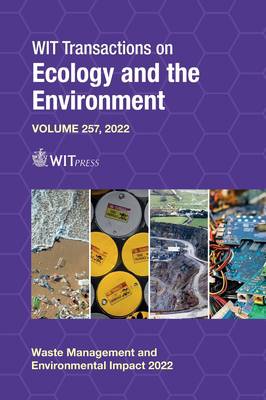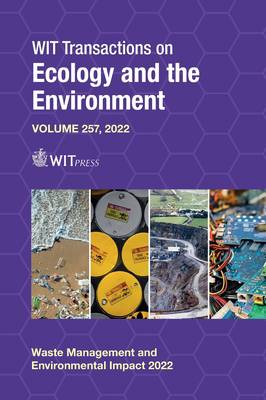
- Retrait gratuit dans votre magasin Club
- 7.000.000 titres dans notre catalogue
- Payer en toute sécurité
- Toujours un magasin près de chez vous
- Retrait gratuit dans votre magasin Club
- 7.000.0000 titres dans notre catalogue
- Payer en toute sécurité
- Toujours un magasin près de chez vous
Waste Management and Environmental Impact XI
Description
Resulting from a merger of two successful events, this book contains papers presented at the 11th International Conference on Waste Management and Environmental and Economic Impact on Sustainable Development. To prevent emerging threats to environmental and ecological systems we must learn from past failures to avoid repeating similar mistakes.
Waste management is one of the key problems of modern society due to the ever-expanding volume and complexity of discarded domestic and industrial waste and its implications on health and the environment. Society is increasingly aware of the need to establish better practices and safer solutions for waste disposal. This creates a need for more research on current disposal methods such as landfills, incineration, chemical and effluent treatment, as well as recycling, clean technologies, waste monitoring, public and corporate awareness and general education.
The desired direction of waste management is towards sustainable strategies that avoid the short term solutions applied in the past. The approach which has emerged as the most promising has been called 4Rs, where reduction, reuse, recycling and recovery are seen as the best actions. More recently these concepts have given rise to the new model of the 'Circular Economy', which is based on the reuse of what up to now has been considered waste, reintroducing them into the production cycle. Further steps are required towards the improvement of current technologies, increased collaboration between the public, government and private sectors and increased involvement of all stakeholders.
The included research works put a focus on the impact of economic constraints on the environment, taking into account the social aspects as well as the over-use of natural resources, contamination and toxicity. Problems of great importance are addressed, with the goal of finding constructive and progressive approaches to ensure sustainability.
Spécifications
Parties prenantes
- Editeur:
Contenu
- Nombre de pages :
- 230
- Langue:
- Anglais
- Collection :
Caractéristiques
- EAN:
- 9781784664633
- Date de parution :
- 10-08-22
- Format:
- Livre relié
- Format numérique:
- Genaaid
- Dimensions :
- 178 mm x 254 mm
- Poids :
- 616 g

Les avis
Nous publions uniquement les avis qui respectent les conditions requises. Consultez nos conditions pour les avis.





